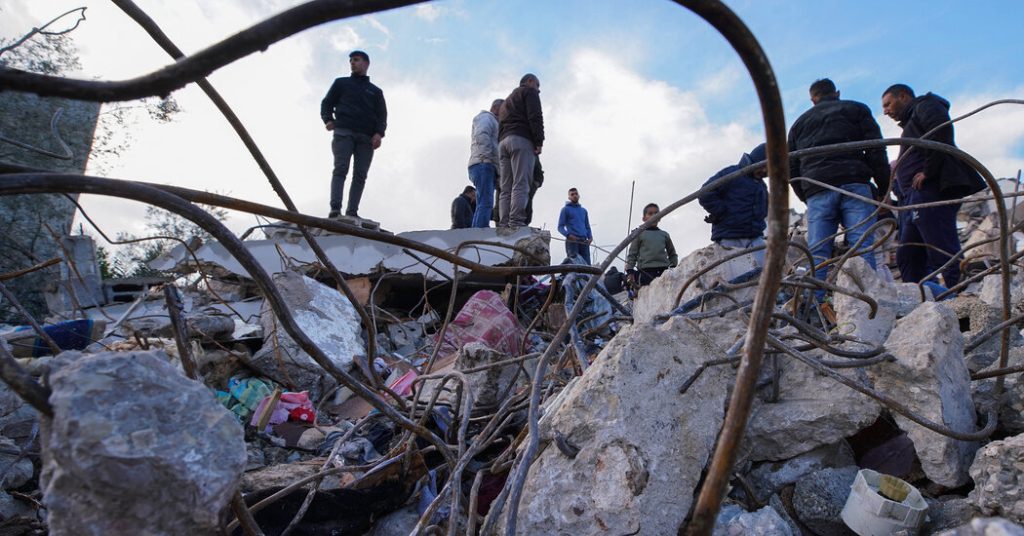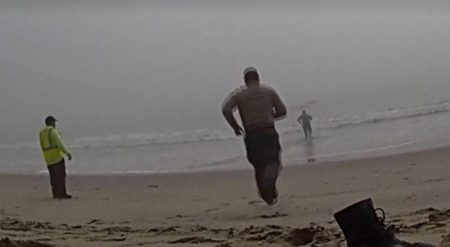The Israeli military’s offensive in Jenin, a hub of Palestinian militant activity in the West Bank, intensified with the targeted killing of two individuals, Mohamad Nazzal and Qutayba Shalabi, linked to Palestinian Islamic Jihad. These men were accused of perpetrating a deadly shooting earlier in June, targeting an Israeli bus and cars in the village of Al-Funduq. This operation in Jenin follows a recent ceasefire in Gaza and represents a shift in focus for the Israeli military, prioritizing the suppression of militant activity in the West Bank. The operation has resulted in significant casualties, with at least ten Palestinians killed and over forty wounded, alongside numerous arrests. The operation underscores the escalating tensions and violence in the region.
The targeted killing of Nazzal and Shalabi occurred during a shootout in Burqin, a village near Jenin. While the Israeli military confirmed the incident and an injury to one of their soldiers, differing accounts emerged regarding the affiliation of the two slain men. Palestinian Islamic Jihad claimed responsibility for the Al-Funduq attack and identified Nazzal as a leader within their Jenin battalion. Hamas, through its media outlet al-Aqsa TV, also presented photos of the men, asserting their membership within its armed wing. This apparent dual affiliation highlights the complex and often overlapping nature of militant groups operating within the West Bank.
The Israeli operation in Jenin unfolds against a backdrop of escalating violence and tension in the West Bank. The rise of militant groups, coupled with an increase in settler violence against Palestinian civilians, has created a volatile environment. The June 6 attack, in which Palestinian gunmen targeted Israeli vehicles, was followed by retaliatory attacks by Israeli settlers on Palestinian villages, further inflaming the situation. The ongoing cycle of violence underscores the deep-seated animosity and the lack of a sustainable peace process.
The Israeli military operation has had a devastating impact on Jenin, particularly the Jenin camp, the primary focus of the raids. Thousands of residents have fled their homes, seeking refuge from the violence and destruction. Those remaining face dire conditions, with essential services like electricity and water cut off, raising concerns of a looming humanitarian crisis. The mayor of Jenin, Mohammad Jarrar, highlighted the recurring pattern of destruction and rebuilding, emphasizing the toll the repeated raids take on the city and its residents. The disruption extends to the local hospital, where Israeli checkpoints impede access and cause delays for ambulances.
The Israeli operation in Jenin marks a significant escalation in military activity in the West Bank. It follows a period of relative calm in the region, particularly after the ceasefire in Gaza. The scale of the current operation is reminiscent of a large-scale raid conducted in August and September of the previous year, which resulted in numerous Palestinian casualties and widespread destruction. This resurgence of intensive military action reflects Israel’s ongoing efforts to suppress militant activity and maintain control in the West Bank.
The international community has expressed concern over the escalating violence in the West Bank. The United Nations has condemned the actions of both sides, while the International Court of Justice has issued an advisory opinion declaring Israel’s occupation of the West Bank and East Jerusalem, including its settlements, illegal under international law. The Israeli government has rejected this opinion, maintaining the legality of its presence in these territories. Jenin’s role as a center of Palestinian resistance, attracting individuals to various militant groups, further complicates the situation and fuels the ongoing cycle of violence. The absence of a meaningful political process and the entrenched positions of both sides make the prospects for a lasting peace in the region increasingly bleak.











